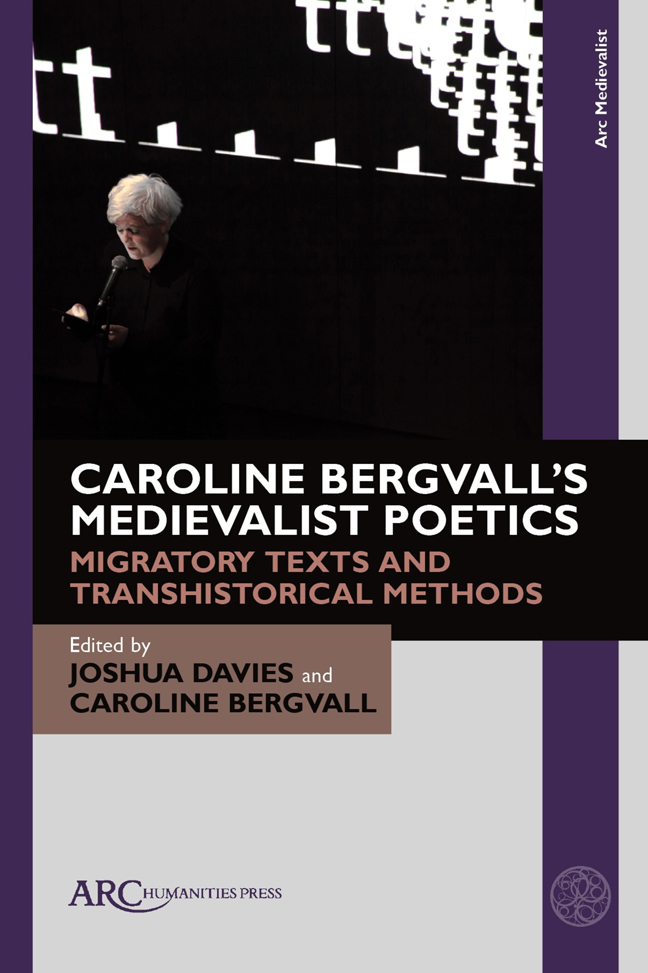Introduction
Published online by Cambridge University Press: 20 February 2024
Summary
WE FIRST MET in the summer of 2014 after a performance of Drift at the Southbank Centre in London. We were introduced by Clare Lees and later embarked with her on a series of informal collaborations. Our goal was to explore the possibilities of inhabiting performative and interdisciplinary ways of engaging with medi eval and contemporary poetics and translation, while developing new modes of teaching and research.
From the winter of 2015 onwards, the three of us worked together on a series of public events, at the Whitechapel Gallery where Caroline was Writer-in-Residence, and at Josh and Clare’s home institution, King’s College London. We worked with students and colleagues from King’s, Forster & Heighes, Tom Chivers, Laura Ferrarello, Jennifer Neville and her students from Royal Holloway, University of London, and others. In the autumn of 2017 Caroline performed part of her long cycle of performances around ancient and minorized languages, Sonic Atlas, supported jointly by the Southbank Cen-tre and King’s Arts and Humanities Festival. She undertook some of her research on this cycle as part of a five yearlong Visiting Professorship at King’s, during which she also ended up presenting one of her “Language Station” events in collaboration with the AHRC-funded “Language Acts and World Making” project.
In November 2019, we convened again with Clare to celebrate the publication of Alisoun Sings, with Caroline fresh from her New York launch of the book. We talked after-wards about the possibility of working on a book together, but didn’t yet know how that might happen. That would be our last shared public event before the pandemic.
Work on this book began in November 2020, as we were returning to life under “lockdown” in London. The idea for it arose in part as a response to our experience of the pandemic but mostly from the desire to work together again. Sat on a bench on an autumn afternoon, the two of us agreed that one way to do so would be to dig at the wealthy pool of pre-existing materials around Caroline’s trilogy and revitalize the con-nections and networks they indicated, from within both medi eval studies and contem-porary poetics.
- Type
- Chapter
- Information
- Caroline Bergvall's Medievalist PoeticsMigratory Texts and Transhistorical Methods, pp. 1 - 8Publisher: Amsterdam University PressPrint publication year: 2023

